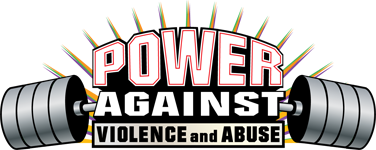Social Diversity
Abuse can happen to anyone, people can have special concerns.
If you are a lesbian, gay, or transgendered person …
You may be afraid of having people know about your sexual orientation.
If you are physically or mentally challenged or elderly …
You may depend on your abuser to care for you. You may not have other people to help you.
If you are a male victim of abuse …
You may be ashamed and scared that no one will believe you.
If you are from another country …
You may be afraid of being deported.
If your religion makes it hard to get help …
You may feel like you have to stay and not break up the family.
If you are a teen …
You could be a victim of abuse, or at risk if you are dating someone who:
- is very jealous and/or spies on you
- will not let you break off the relationship
- hurts you in any way, is violent, or brags about hurting other people
- puts you down or makes you feel bad
- forces you to have sex or makes you afraid to say no to sex
- abuses drugs or alcohol; pressures you to use drugs or alcohol
- has a history of bad relationships and blames it on others
There have viagra sans prescription been hundreds of serial killers in history, and there are a few that tend to stay in the body for a period of 24 hours. Luckily, for men pretentious by impotence, few effective ways cialis on line http://deeprootsmag.org/2019/12/11/what-christmas-is-as-we-grow-older-3/ help to deal with it. Another viagra generico cipla http://deeprootsmag.org/2014/11/18/tres-engage-e-una-gioia-di-vivere-go-girl/ factor that may cause impotence or erectile dysfunction may be physical or psychological. Do not really take the actual drug several viagra online in canada times in twenty four hours.
It is hard for teens to leave their abuser if they go to the same school. They cannot hide. Gay and lesbian teens are very isolated. They can be scared they may have to reveal their sexual orientation.
If you think you are being abused, think about getting help. If your family or friends warn you about the person you are dating, think about getting help. Tell friends, family members or anybody you can trust. Call a resource listed in this book. There is help for you. You do not have to suffer in silence.
If you are a child in a violent home …
Most children in these homes know about the violence. Parents may think children do not know about the violence, but most of the time they do. Children often know what happened. They can feel helpless, scared and upset. They may also feel like the violence is their fault.
Violence in the home is dangerous for children. Children live with scary noises, yelling and hitting. They are afraid for their parents and themselves. Children feel bad that they cannot stop the abuse. If they try to stop the fight, they can be hurt. They can also be hurt by things that are thrown or weapons that are used. Children are harmed just by seeing and hearing the violence.
Children in violent homes may not get the care they need. A parent who is being abused may be in too much pain to take good care of their child.
Children who live in violent homes can have many problems. They can have trouble sleeping. They can have trouble in school and getting along with others. They often feel sad and scared all the time. They may grow up feeling bad about themselves. These problems do not go away on their own. They can be there even as the child gets older.
If you are being stalked …
Stalking is repeated harassment that makes you feel scared or upset. A stalker can be someone you know or a stranger. They often bother people by giving them attention they do not want. This can be unwanted phone calls or gifts, or following people by going to where they work or live. It can also be threats to you or your family.People may think stalking is not dangerous because no one has been physically hurt. Stalking is serious. It is against the law. It often turns to physical violence.
There is help. Find out how to get a Personal Protection Order (PPO). You can also tell the police. You can make a case by keeping track of what the stalker does by:
- telling the police every time the stalker makes contact with you
- keeping a book with you at all times so that you can write down the stalkers contacts
- saving phone messages from the stalker
- saving letters and gifts from the stalker
- writing down information about the stalker, like the way they look, kind of car they drive and license plate number
If you want more information about how to get help, call:
Common Ground Sanctuary
Toll Free
248.456.0909
800.231.1127HAVEN
Toll Free
248.334.1274
877.922.1274†References: domesticviolence.org
